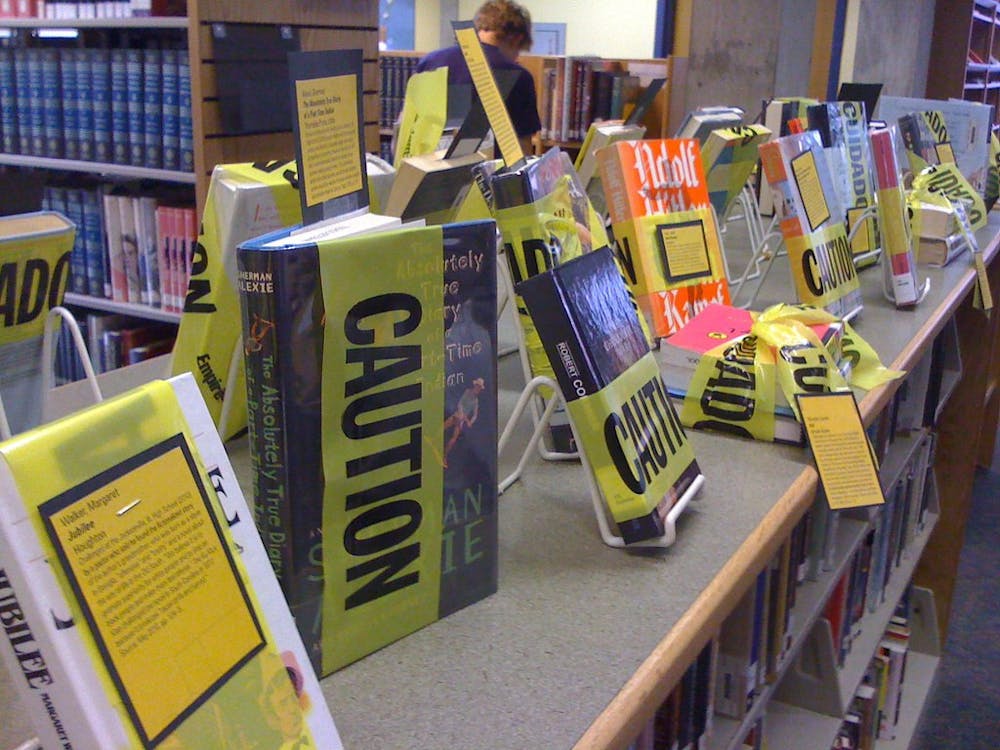Georgia legislators are working on Senate Bill 226, which is meant to ease the procedure for parents to ban books in their children’s school district.
The bill would allow parents to report any material for immediate review by the principal, essentially immeditately suspending it from the reading list. The principal (or applicable personnel) will then have 10 days to evaluate the reading material and determine whether it should be banned. Parents who oppose the principal’s decision can appeal to their school board for further reconsideration.
The Bibb County School District already has such a structure in place. According to BCSD’s Director of Media Services, Michelle Lenderman, Bibb County’s “Reconsideration Policy” requires that the school first speaks with the parent if a complaint about a book should arise.
If the parent still wants to have the book reconsidered after the initial meeting with the school, the parent can fill out a form to submit to the school principal. Subsequently, the parent will convene with a school committee to discuss the complaint, after which, the committee will come to a decision. If the parent is unsatisfied with the committee’s decision, they can request a meeting with the district committee.
“It is important for (BCSD) that when we choose resources, whether it is a textbook or library material, that we have a trained staff member (a certified media specialist) who’s certified in the selection of material for the K-12 libraries or educators select the textbooks,” Lenderman said.
As part of the book selection process for Bibb County schools, media specialists collect recommendations for new materials in the library from teachers, students and parents.
“Here in Bibb we value input from our parents," District 4 BCSD Board Member Juawn Jackson said. "We have a system in place that allows for parents to share their thoughts and feedback with us. We value feedback, so we always are excited to be able to gauge with parents and students about learning materials that we use in our schools.”
Some parents are concerned that Senate Bill 226 will not enhance student education.
Elizabeth Harper, professor of English at Mercer University, believes parent involvement should be exclusive to their child and that “lobbying the library to take books away is the wrong place to start.”
“For me, the most important thing as a parent is I need to know what my kids are reading, and I need to be talking to them about it," Harper said. "I wish we were encouraged to read more books in class (...) I wish I had been more exposed to more writers of color.”
She views the debate over Senate Bill 226 to be evident of why students should have access to more writers and inclusive libraries.
Mercer Professor of American Literature and Southern Studies, David Davis, thinks the bill is synonymous with censorship.
“This bill intends to allow parents the opportunity to impede their children’s access to materials based on the parent’s personal beliefs, religion or ideology, thus limiting the ability of all students to be exposed to ideas, viewpoints, or perceptions about other people,” Davis said.
Though the bill defines harmful material for students as having a “quality of description or representation, in whatever form, of nudity, sexual conduct, sexual excitement, or sadomasochistic abuse…,” it extends this definition to material that, “when taken as a whole, (is) lacking in serious literary, artistic, political, or scientific value for minors.”
This caveat is what Gordon Johnston, Professor of Creative Writing at Mercer University, describes as his leading concern about the bill.
“Education ought to be accurate and it ought to be honest. My main worry about the legislation, if you read the language of the bill, it’s oriented towards keeping inappropriate, sexual material out of the hands of children," Johnston said. "That’s already being done by the system as it stands now."
Both Davis and Johnston believe literature to be the most effective way to practice empathy.
Johnston thanks literature for providing him an awareness of perspectives he would’ve never been exposed to otherwise. Saying he believes libraries should offer access to information to everybody across the spectrum.
“The reason I’m a professor, the reason I’m a writer and a reader, is because one life is just not enough for me," Johnston said. "If I can’t read Toni Morrison, I can’t be a twelve-year-old African American girl in Ohio who is given a white baby doll and told she ought to love it."
Davis agrees with Johnston, saying literature is foundational to emotional growth.
“Reading literature as a young person is perhaps the single most effective way to learn the practice of empathy, to think about how people different from you experience the world, to think about how they feel, to think about ideas that can be somewhat challenging. I think that that challenge, that discomfort, is absolutely essential to growth," Davis said.
He does not believe the bill will benefit students, and says it is “the latest front in culture wars.” Davis explained the legislation is meant to pacify parents who are enraged about critical race theory being taught in schools.
Critical race theory is a framework that is taught generally in graduate and law schools. It is meant to aid with the understanding of racial disparities among marginalized groups and expand on how some of our systems of governance have been infiltrated with prejudice.
As it stands, critical race theory is not being taught in any elementary, middle or high schools.
Mercer professors David Davis, Elizabeth Harper and Gordon Johnston, all of whom are parents and Bibb County residents, believe the bill inhibits students’ abilities to be exposed to a variety of backgrounds and identities that are fundamental to a well-rounded education.





